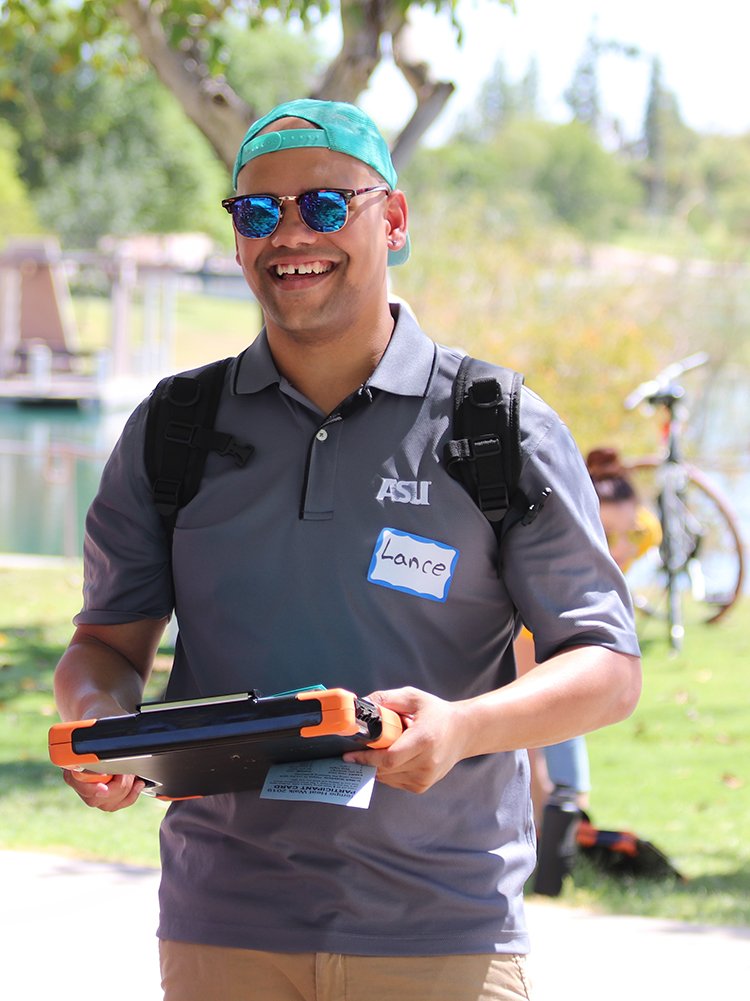People & Programs
Jorge Salazar
Feeling the Heat
Personal heat exposure wins 2022 DesignSafe Dataset Award

Personal heat exposure can be devastating. On average, about 658 people die each year in the U.S. from heat-related illness.
Arizona State University (ASU) researchers are leading an effort to gather much-needed data on heat exposure. During the summer of 2016, they collected ambient temperature sensor data from 55 volunteers in Phoenix, Arizona.
The science team’s data won a 2022 DesignSafe Dataset Award, which recognized the dataset's contributions to natural hazards research.

“This dataset fills what many researchers have identified as a critical link in understanding the potential vulnerabilities to heat faced by different communities across the country,” said dataset co-author David Hondula, an associate professor in the School of Geographical Sciences and Urban Planning at ASU.
The dataset provided a granular picture of the conditions that people experience as they move from home to work to place of recreation.
“We didn't see a big difference in people’s individual average temperature exposure throughout the study period,” said dataset co-author Lance Watkins, a PhD student advised by Hondula at ASU.
This finding indicated that for the most part participants were well-situated to maintain their exposure to extreme heat and to keep their temperatures relatively low — or that they stayed in environments where temperatures were relatively low.
However, Watkins noted a larger difference in people’s maximum temperature with the highest recorded at 117 degrees Fahrenheit.
“While average exposure wasn't terribly hot, the larger variation in maximum exposure implies that people still find themselves in dangerously hot environments as they go about their day," Watkins said.
The dataset was made publicly available on the NHERI DesignSafe cyberinfrastructure.
“By being able to share the study details through DesignSafe, over time we're going to see real benefits to the scientific community as a whole," Hondula added.
The award-winning dataset is also part of a larger study called Three City Heat and Electrical Failure Adaptation Study (3HEAT) that is funded by the National Science Foundation.
The researchers assert that data can help make a difference to disadvantaged communities, which also happen to be the hottest.
Said Hondula: “I’m excited about how these types of datasets can help communities make their argument to public officials. These data carry credibility in the eyes of decision makers that can add extra urgency to the conversation.”
The dataset PRJ-3324 | Personal Heat Exposure was published by Lance Watkins, Mary Wright, Paul Chakalian, Elizabeth Kurtz, and David Hondula of Arizona State University. Funding was awarded by the National Science Foundation (NSF) grant SEES-1520803.

